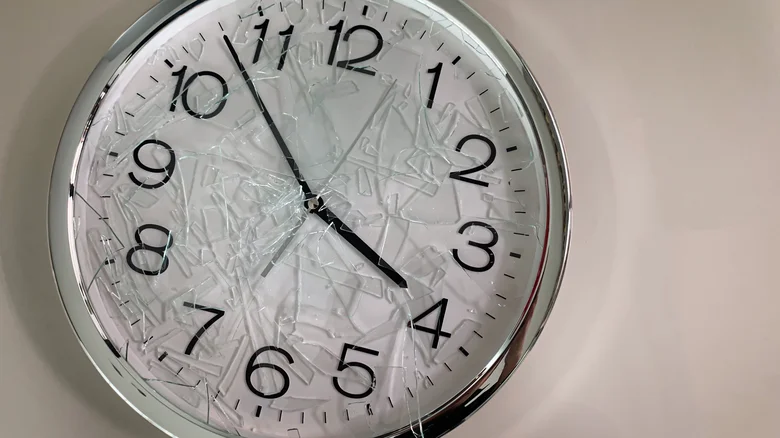Licensing Limbo: Where applications go to die…. Does Glasgow’s STL Licensing System have a Broken Clock?
- April 10, 2025
- Posted by: STL, Glasgow Office
- Category: Uncategorized

However, for a growing number of those who have applied more recently, the system appears to be increasingly broken and, as a result, unnecessarily speculative.
STL Solutions is aware of several cases in the city where licensing applications were made more than 9 months ago and where, despite the authority being unambiguously reminded of their statutory duty and the effect of Section 3 of the 1982 Act, no licence has been forthcoming nor any confirmations issued by the authority.
Indeed, the authority has not deemed it necessary to give such applicants (or their agents) the courtesy of any response to repeated, valid demands that these issues be resolved and that licensed statuses be confirmed.
A noteworthy exception to this ‘radio silence’ from the city has come from Cllr Alex Wilson, Chairperson of the city’s Licensing and Regulatory Committee, who has responded promptly and diligently to enquiries by STL Solutions but who appears unable to intervene directly to resolve “processing matters.”
The circumstances under which a licence application can be refused are constrained. (Civic Government (Scotland) Act 1982, Schedule 1, Paragraph 5) and any refusal of a licensing application can subsequently be appealed, citing a number of well-understood variously applicable grounds. (ibid, para 18)
There are also clearly defined parameters in law where licensing authorities can (quite validly) refuse to consider Short-Term Let licensing applications. For example, in the face of questions over the likely consequences (in planning terms) of a licence being issued, the authority can issue a notice under Paragraph 2A of Schedule 1 of the Act, above (known as a preliminary refusal to consider). These powers are also tightly constrained; being subject to various legal caveats and mandated timescales after expiry of which the right on the part of the authority is lost.
However, what can be the benefit of the provisions above, each inserted into legislation with safeguards designed to protect the rights of the public, when Glasgow City Council (and presumably others) can simply refuse to acknowledge their responsibilities and can leave licensing applications in a state where they are considered but (at least as far as the authority is apparently concerned) forever undetermined?
Why would any licensing authority, perhaps- and I speculate- with a political imperative to restrict the number of licences being granted, go to the trouble of refusing a licence application (which may then be subject to Paragraph 18 appeal) or of issuing a preliminary refusal to consider (which might introduce administrative challenges around the timing of such notices) when they can simply send an application to licensing limbo by, in practice, refusing to issue any decision at all (and where, until a licence is formally issued, the applicant might reasonably expected to be ignorant of any right they have accrued to start trading)?
As set out above, the law in this area is clear. In the absence of a (valid) Paragraph 2A notice, an extension to the deadline for determination being granted by a Sheriff, or the application being otherwise (properly) refused under Paragraph 5, a licence is deemed granted (for one year) once the timescales set out under Section 3 expire. The relevant applicant will then have a licence, and no prima facie licensing offence occurs when that licence is invoked, so long as licensing conditions are met.
Arguments about whether any refund from the council is appropriate in these circumstances (and exactly what licensing conditions any new licensee might be subject to) aside, this fact should be sufficient to ward off future licensing enforcement action or (in the worst-case scenario) approaches from criminal authorities.
However, what are such licensees to do when it comes to enquiries from their lenders, insurers, neighbours or (potentially more worryingly) guests, all of whom might reasonably expect to have sight of a properly formatted licence document which (at present) there appears to be no avenue to procure?
A robust and well-constructed legal letter from an independent body, setting out the various legislative and other legal conventions as to why a licence has, in fact, been obtained may suffice in some cases. Yet, why should licensees have to go to the expense of obtaining such an artefact, in the face of Glasgow City Council’s failings (and reluctance to address them)?
There is a temptation to consider that the authority in Glasgow is treating the licensing process itself as a kind of trial by bureaucracy, attempting to meet a political aim that is currently beyond its legal means, by confounding the application process; on the one hand, placing unreasonable and unworkable demands on applicants before an application will even be accepted as “valid” whilst, on the other, failing to adequately respond to proper enquiries, meet their own legislatively mandated responsibilities or issue confirmations in respect of licensed statuses obtained via Section 3.
Illustrative is another recent case that STL Solutions is aware of, where an applicant had their licensing application returned as invalid because the licensing fee (a payment reference for which is only generated after submission of the application and which can only be paid in Glasgow by bank transfer) was not received by the authority within a single working day.
In stark contrast, Glasgow’s licensing department gives itself 14 days to respond to enquiries from applicants, licensees or the public and, in the case of operators whose licences ought to have been granted long ago under the 9-month rule, emails and enquiries made in January, February and March all remain (currently) unanswered.
The licensing department in Glasgow has no phone number for general use by the public and regularly takes weeks to respond to requests for information. As in the instances above, some issues are not being addressed at all.
Despite this, the same department can find the time and facility to contact applicants after the close of office hours, to inform those applicants of their (deemed) failings and to notify the return of licensing applications, despite the application process having breached no stated policy, direction or advice previously issued. Whilst STL Solutions has sympathy with all licensing authorities who, like operators, may struggle to work within the bounds of new (and difficult) legislative requirements, other stakeholders might be excused for thinking that Glasgow’s licensing clock works, but only when (and if) it suits.
STL Solutions is keen to engage with and assist any licensing applicant (anywhere in Scotland) whose STL Licence applications were made more than 9 months ago and who have not yet received their licences. We are engaged with the authority in Glasgow and continue to make enquiries at high level on behalf of operators unfairly affected by this issue. In such cases, we can also provide formal letters confirming where licences ought to have been issued, for use with guests, neighbours, lenders or authorities. We can also provide expert advice to those subject to licensing refusals (or refusals to consider) to ensure the relevant application has been treated in accordance with good law, and can work to ensure any licence application made on your behalf satisfies the various, often confounding,requirements of the licensing department in question.
About the Author
